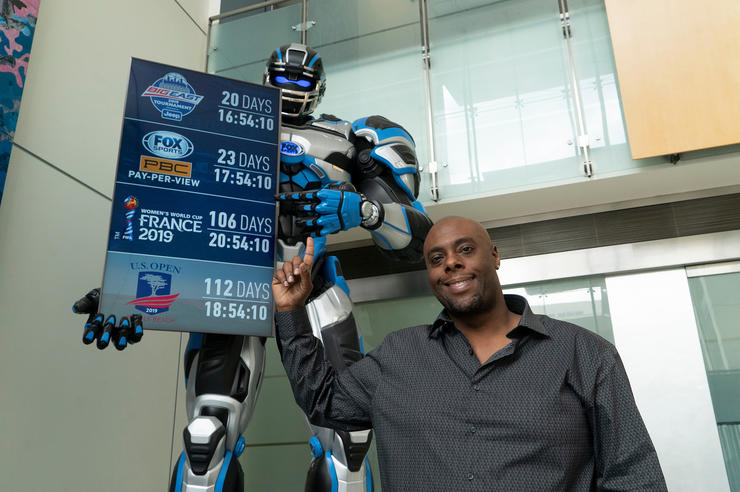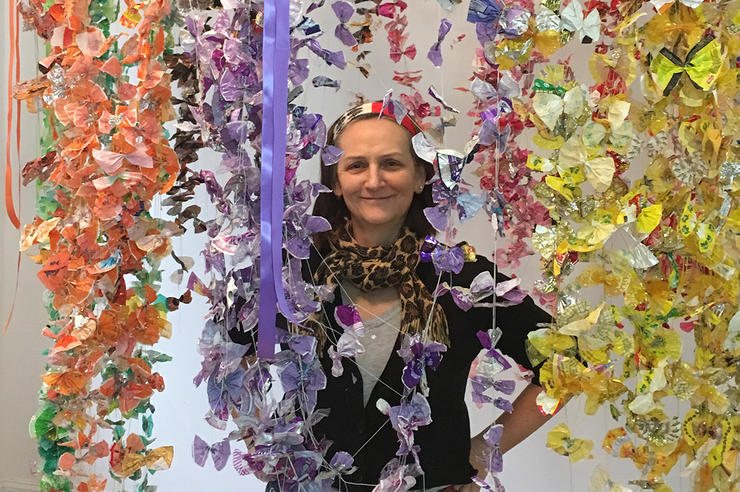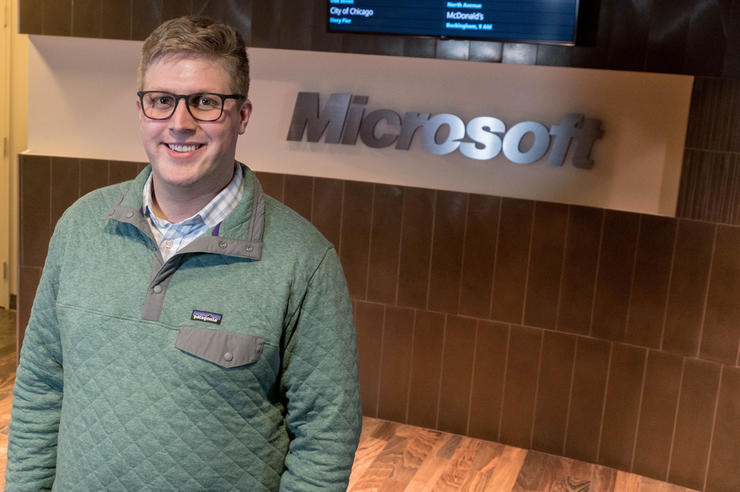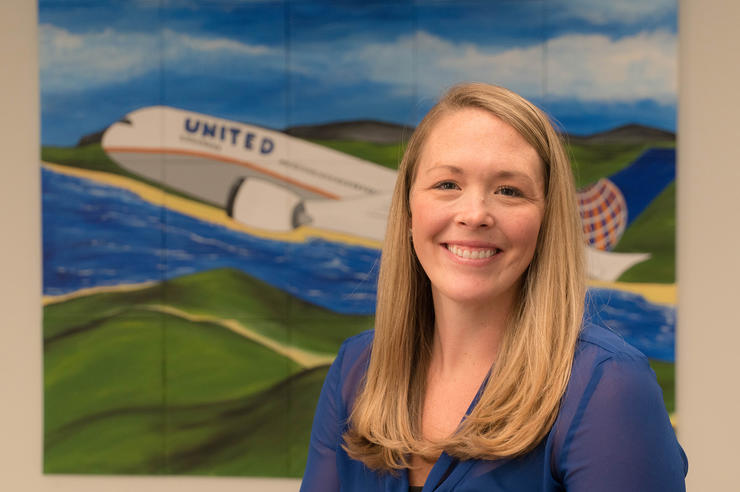Turning the tide for sick seals
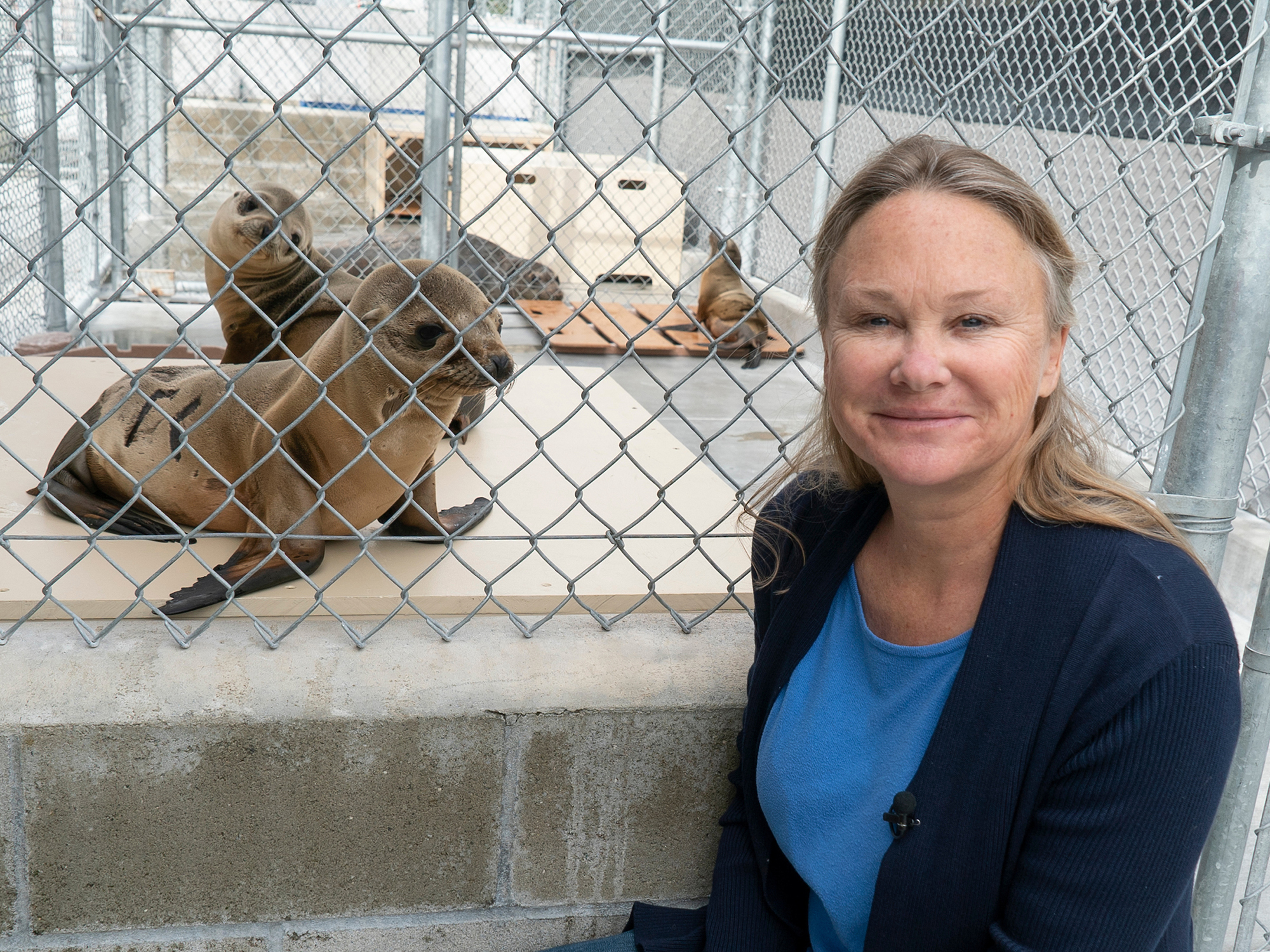
Waddle to the water’s edge, slip headfirst into the pool, emerge abruptly, and slide to a stop. Repeat. And repeat again.
There is seemingly endless cavorting among the pinnipeds at Marine Mammal Care Center Los Angeles, that is until a woman donning heavy-duty hip waders enters their enclosure with a bucket full of slimy fish. They pause, give her their full attention, and patiently await lunch.
The seals and sea lions at this care center in San Pedro, California—a community within Los Angeles—are charming, to be sure. They gaze up at visitors with their round, puppy-dog eyes before turning toward the water and showing off their swimming and diving skills. It’s easy to forget that they are patients who have been brought to the hospital for treatment, whether for illness, injury, or malnutrition.
On this day there are 40 animals in the facility, but that number easily surpasses 125 during the busy season in spring and early summer. Overseeing their care is University of Iowa graduate Lauren Palmer, a veterinarian who earned a Master of Public Health from Iowa in 2015 and has been with the care center since 2005.
“The UI program is geared, at least in part, to veterinarians. And it’s a very flexible program that allows students seven years to complete. I didn’t want to leave my job to go back to school, so it worked out really well for me. The classes helped me think about my animal population in a different way.”
“I love working with pinnipeds. Sea lions are just a wonderful species to work with,” she says. “The more I watch them, the more I respect them. They are very social animals—they’re gregarious, they’re outgoing, they’re playful. And they treat each other, for the most part, very kindly. Plus, they’re smart. They recognize people and patterns. But they are wild. They live in a wild environment, and the ocean is not always a hospitable place. We try to get them better so that they can return.”
Established in 1992 as a nonprofit organization to rehabilitate and return the mammals to the ocean, Marine Mammal Care Center Los Angeles treats and releases hundreds of rescued animals each year—primarily California sea lions, northern elephant seals, Pacific harbor seals, and northern fur seals, with most staying at the care center a couple of months.
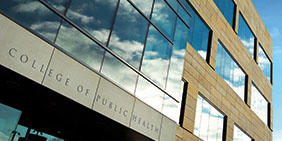
Learn more about the degree programs available through the University of Iowa College of Public Health at www.public-health.uiowa.edu.
The facility is open to the public every day of the year at no charge, and staff members also regularly collaborate with research scientists and host students from kindergarten to veterinary school.
“One of the things I find so interesting about this job is that there is no typical day,” Palmer says. “Every animal comes in a little bit different. Sometimes we have weanlings suffering from malnutrition, but we also can have animals suffering from traumatic injuries like a shark bite. Or we might have an animal suffering from a toxin in the water.”
Palmer, who split her childhood between Oregon, the San Francisco Bay area, and Utah, had long been interested in veterinary medicine and marine life—indeed, she earned an undergraduate degree in marine biology from California State University at Northridge—but she spent two decades working as a sound editor in the film industry before revisiting that passion.
“I grew up watching Jacques Cousteau and wanted to be an oceanographer,” she says. “It just never seemed like a career I would have, partly because I struggled with science in school.”
Palmer ultimately attended veterinary school at the University of Minnesota and returned to the West Coast, where she landed at Marine Mammal Care Center Los Angeles. Though she loved her work there, she longed to continue her education and expand her knowledge. So, she started looking at distance-learning options, and a master’s program in the UI College of Public Health stood out.
“The UI program is geared, at least in part, to veterinarians. And it’s a very flexible program that allows students seven years to complete. I didn’t want to leave my job to go back to school, so it worked out really well for me,” says Palmer, who took most classes online but came to campus over two summers. “The classes helped me think about my animal population in a different way.”
Palmer says she particularly enjoyed classes in epidemiology and statistics and learning more about the U.S. health care system. But, she adds, what she learned from her peers was equally informative.
“There were students from other countries, and we didn’t all have the same background. We might be discussing a particular health issue, for example, and somebody would chime in, ‘Hey, we’re just worried about clean water,’” she says. “It made me realize that we have different immediate needs related to health. It’s always good to get different perspectives.”
Palmer says her UI education helped broaden her understanding of health in general.
“My thinking on how wildlife health and human health intersect and overlap has evolved over time,” she says. “I used to think of them in very separate terms: We had an urban environment and a rural environment, and then there was the wild environment. I no longer think of those as distinct. They are connected. The health of all these environments is impacted by what we do. There’s a concept of one health, which is used quite frequently in veterinary medicine, but I don’t even think of one health anymore. I think of one planet.”
To that end, Palmer says education and outreach are integral to the care center’s mission of rehabilitating seals and sea lions.
“We’re successful when we return an animal to the wild, but we are also successful when we have veterinary students as well as the public come by and learn something, whether it’s changing the way they think about wildlife or the ocean ecosystem or what we do on the planet,” she says. “Those little things happen here and there, and to me that’s equally as important as returning an animal to the wild.”
To read more about University of Iowa graduate Lauren Palmer’s work at Marine Mammal Care Center Los Angeles, visit marinemammalcare.org.
